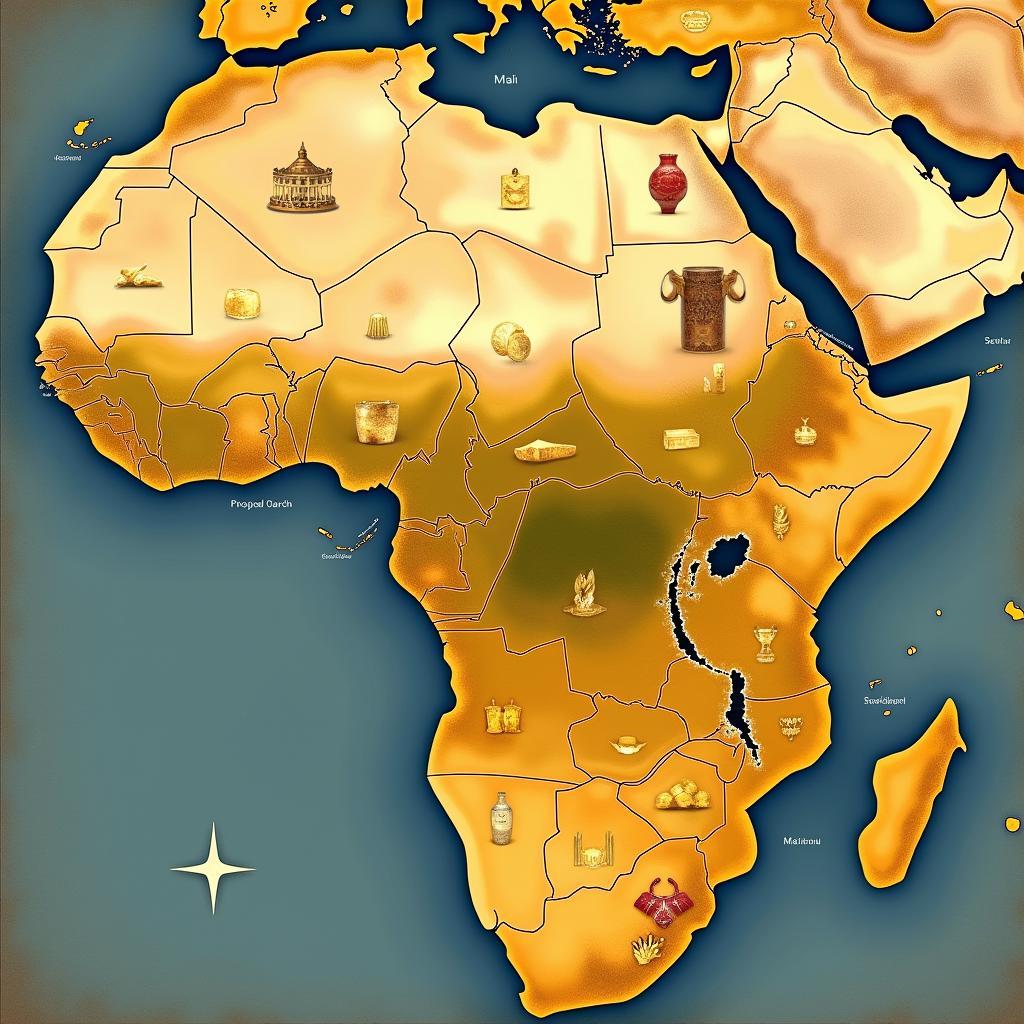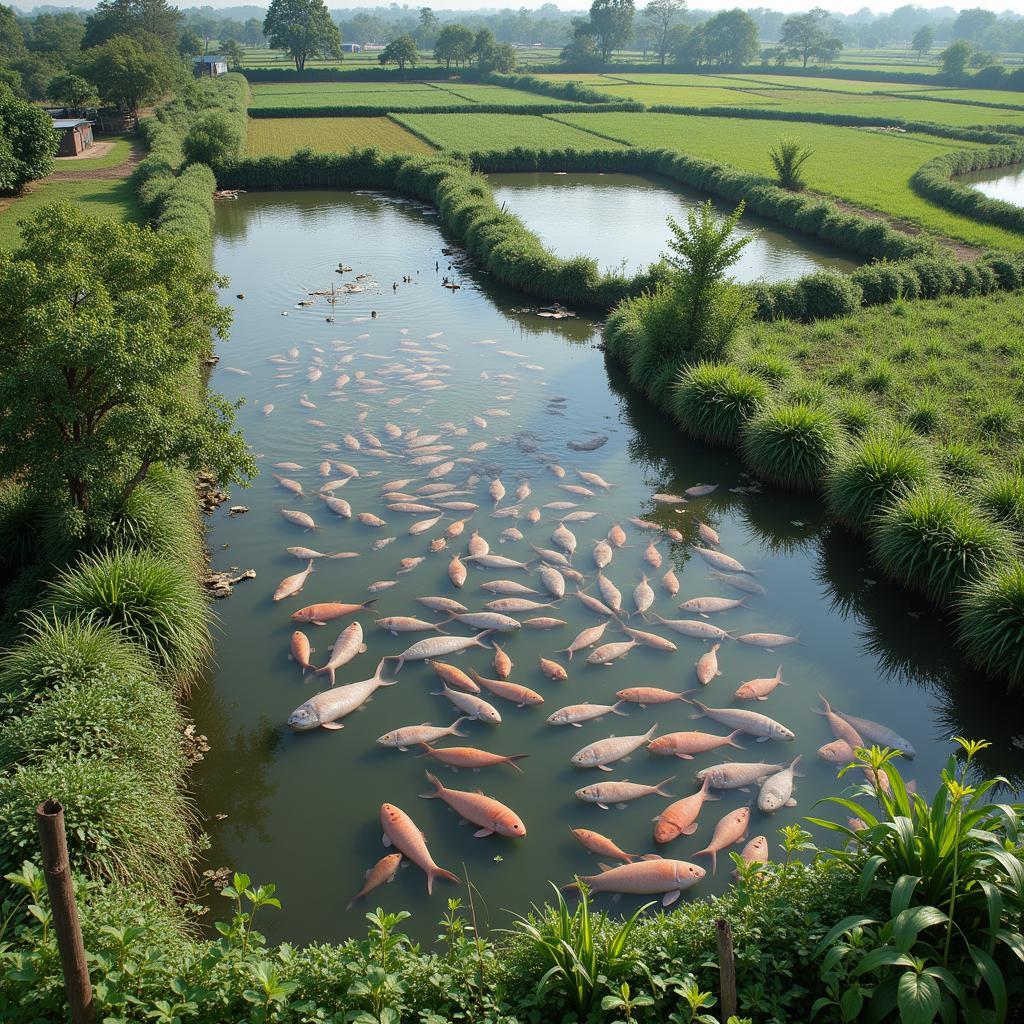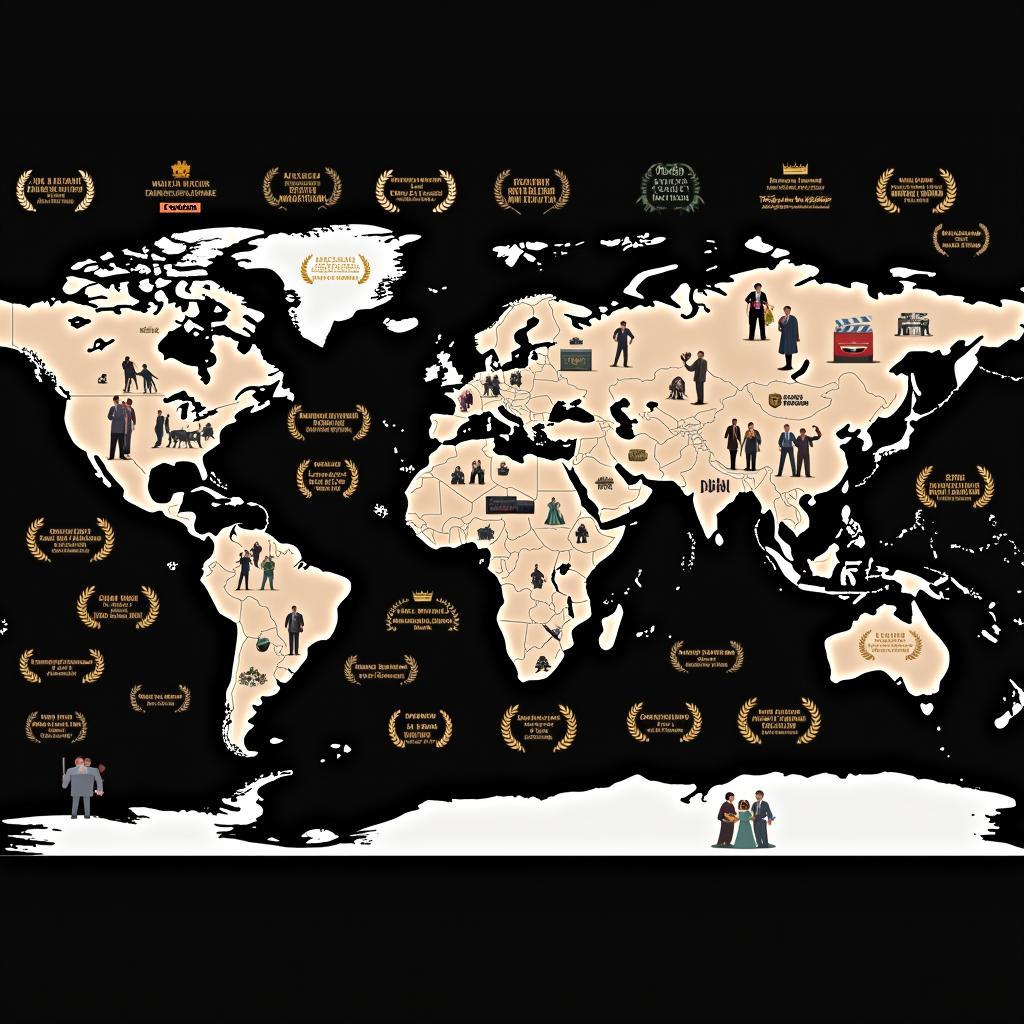African Gold Definition: Unveiling the True Meaning
African Gold Definition goes beyond the simple description of a precious metal. It encompasses a rich history, cultural significance, and economic impact that has shaped the continent for centuries. From ancient kingdoms adorned with gold to modern-day mining operations, this precious metal continues to play a vital role in Africa’s story. Let’s explore the multifaceted meaning of African gold.
A Historical Perspective on African Gold
Gold has been a symbol of wealth and power in Africa for millennia. Ancient civilizations like the Egyptians, Nubians, and Ghanaians built their empires on the trade of gold, using it to forge alliances and fund monumental projects. The famed trans-Saharan trade routes were established primarily for the exchange of gold, salt, and other valuable commodities, connecting North Africa with West Africa and fueling the growth of powerful empires like the Mali Empire and the Songhai Empire. These empires controlled vast gold reserves, showcasing their wealth through elaborate gold jewelry and artifacts.
The arrival of Europeans in the 15th century marked a significant shift in the African gold trade. European powers established trading posts along the coast, exploiting Africa’s gold resources to fuel their own economic expansion. This period unfortunately coincided with the transatlantic slave trade, a dark chapter in history where African people were forcibly displaced and exploited for labor in the Americas, often in exchange for goods that included gold. The legacy of this period continues to shape Africa’s relationship with the global economy.
 Ancient African Gold Trade Routes and Empires
Ancient African Gold Trade Routes and Empires
The Geological Significance of African Gold
The geological formation of gold in Africa is another aspect of its definition. The continent boasts some of the world’s oldest and most productive gold deposits, formed over millions of years through complex geological processes. South Africa, in particular, has been a major gold producer for over a century, with the Witwatersrand Basin holding one of the largest known gold reserves in the world. Other significant gold-producing countries in Africa include Ghana, Mali, Tanzania, and the Democratic Republic of Congo.
Understanding the geological formation of gold deposits helps us appreciate the vastness and complexity of these resources. It also informs responsible mining practices and helps in the development of sustainable extraction methods that minimize environmental impact. This geological understanding is crucial for ensuring the long-term viability of the African gold industry.
African Gold in Modern Times: Challenges and Opportunities
Today, African gold continues to be a significant driver of economic activity. It provides employment opportunities, contributes to government revenue through taxes and royalties, and attracts foreign investment. However, the industry also faces significant challenges, including illegal mining, environmental degradation, and human rights concerns, particularly related to African diamond mines child labor. Ensuring ethical and sustainable mining practices is paramount to maximizing the benefits of African gold while minimizing its negative impacts.
What is the cultural significance of gold in Africa?
Gold holds deep cultural significance, symbolizing wealth, status, and spiritual power. It is often used in traditional ceremonies, rituals, and adornments, reflecting a rich cultural heritage passed down through generations.
How has the African gold trade evolved over time?
From ancient trade routes to modern mining operations, the African gold trade has undergone a complex evolution, influenced by both internal and external factors.
What are the key challenges facing the African gold industry today?
The African gold industry grapples with issues such as illegal mining, environmental damage, and human rights concerns. Addressing these challenges is essential for sustainable development.
Conclusion: The Enduring Legacy of African Gold
African gold, far from being simply a precious metal, represents a complex tapestry of history, culture, and economic significance. Understanding the African gold definition requires delving into its past, acknowledging its present challenges, and envisioning a future where its benefits are shared equitably and sustainably. From the ancient kingdoms that flourished on its trade to the modern economies that depend on its production, African gold continues to shape the continent’s narrative. Remember, the true worth of African gold lies not just in its monetary value but also in its enduring cultural and historical legacy.
FAQ
- What are the major gold-producing countries in Africa? South Africa, Ghana, Mali, Tanzania, and the Democratic Republic of Congo are among the leading gold producers.
- How is gold extracted in Africa? Both modern, large-scale mining operations and traditional, artisanal mining methods are used.
- What is the role of gold in African economies? Gold contributes to government revenue, provides employment, and attracts foreign investment.
- What are some of the ethical concerns surrounding African gold? Issues like illegal mining, environmental degradation, and human rights violations need to be addressed.
- What is the cultural significance of gold in Africa? Gold often symbolizes wealth, status, and spiritual power, playing a key role in traditional ceremonies and rituals. Just like exploring African American art history timeline unveils rich cultural narratives, understanding the significance of gold in African culture reveals profound insights. For captivating visuals, consider African forest wallpaper.
- How does gold contribute to African societies? Besides its economic impact, gold plays a vital role in cultural traditions and social structures. You can also discover inspiring messages through African American sister quotes.
- What is the future outlook for the African gold industry? Sustainable and ethical mining practices are crucial for the long-term success of the industry. Similar discussions around African American education in the 1960s highlight the importance of equitable access and development.
Need support? Contact us 24/7 at +255768904061, kaka.mag@gmail.com, or visit us in Mbarali DC Mawindi, Kangaga, Tanzania.


